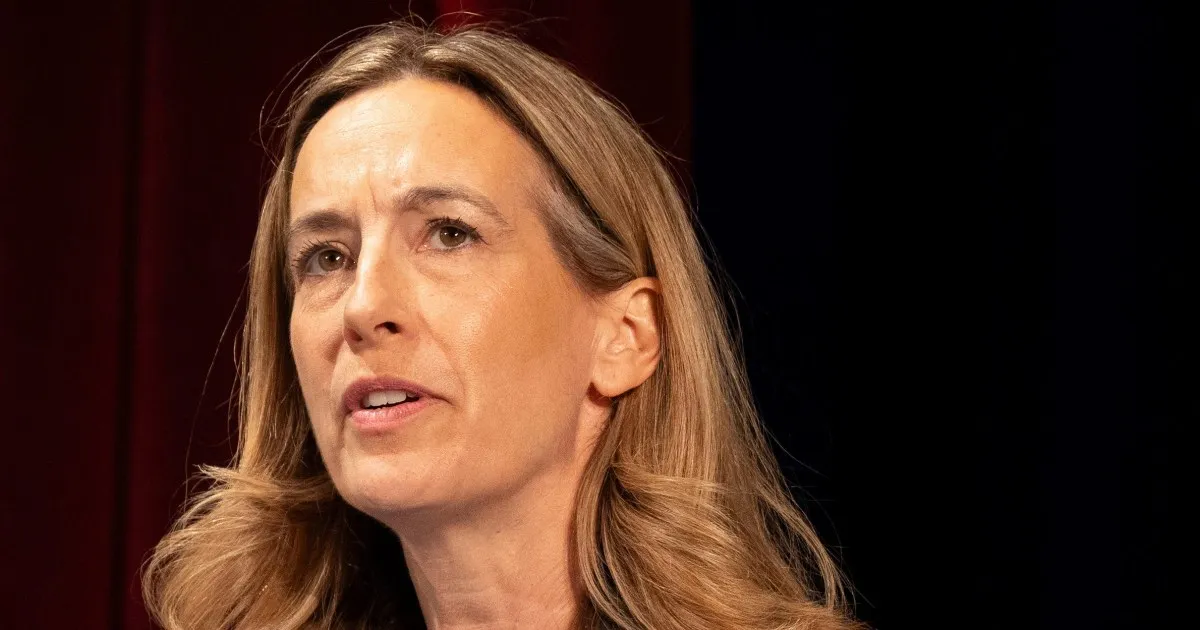
The battle for New Jersey's governorship has intensified as candidates react to the Trump administration's decision to freeze billions of dollars in federal funding for critical infrastructure projects, particularly the Hudson Tunnel Project. This vital initiative aims to create a connection between New Jersey and New York City, and its funding has become a focal point in the ongoing gubernatorial campaign.
On Wednesday, Democratic Representative Mikie Sherrill expressed her discontent with the funding freeze, labeling it as further proof that her opponent, Republican Jack Ciattarelli, fails to stand up to former President Donald Trump. Sherrill has been vocal about her efforts to secure funding for the Gateway Hudson Tunnel Project, proudly referring to herself as the "tunnel-obsessed congresswoman." In a recent gubernatorial debate, she stated, “I first ran on a promise to build the Gateway Tunnel, and I delivered,” emphasizing her commitment to New Jersey's infrastructure.
In response to the funding freeze, Ciattarelli's campaign shifted the blame back to Sherrill. They criticized her for opposing a GOP-led government funding measure that had previously passed the House but stalled in the Senate due to Democratic resistance. Campaign strategist Chris Russell stated, “If Mikie Sherrill did her job as a congresswoman we wouldn’t be in this mess.” He pointed out that Sherrill has reportedly missed over 90% of her work in the House this year, indicating that her political maneuvers are putting the Gateway Tunnel Project and other New Jersey priorities at risk.
The funding freeze coincided with a federal government shutdown, which occurred after Congress failed to agree on a funding plan. Russell Vought, the White House budget director, announced that the administration would pause funding for both the Hudson Tunnel Project and the Second Avenue Subway due to concerns over “unconstitutional DEI principles.” The Transportation Department also attributed the funding delay to the actions of "radical Democrats" who allegedly prioritize benefits for illegal immigrants, despite U.S. law prohibiting federal health care benefits for undocumented individuals.
Sherrill remains resolute in her commitment to the Gateway Tunnel Project. She vowed to “fight tooth and nail” to see the project completed, asserting that Ciattarelli's allegiance to Trump compromises his ability to advocate for New Jersey. “Jack Ciattarelli will not stand up for New Jersey,” she declared, highlighting his reluctance to oppose Trump on any issue and his refusal to consider legal action against the Trump administration to protect New Jersey's interests.
Despite the criticism, Ciattarelli has stated that, if elected governor, he would avoid suing the White House, calling such actions “a waste of taxpayer dollars.” He has, however, distanced himself from Trump on specific issues, notably opposing the administration's plan to house immigrant detainees at a military base in New Jersey.
New Jersey Senator Andy Kim, who opposed the GOP funding plan in the Senate, described the administration's funding freeze as “illegal.” He expressed concern that the partisan nature of the funding pause would eventually backfire, stating, “It’s going to hurt New Jersey.” Kim emphasized that if Ciattarelli aligns entirely with Trump, he will be held accountable for the delays affecting the Gateway Tunnel Project.
The ongoing debate surrounding the Hudson Tunnel Project and the recent federal funding freeze illustrates the high stakes of New Jersey's gubernatorial race. As candidates Sherrill and Ciattarelli clash over their records and future commitments, the implications for New Jersey's infrastructure and the upcoming election grow increasingly significant. With the election just weeks away, voters will need to weigh the candidates' positions and their potential impact on the state's future.